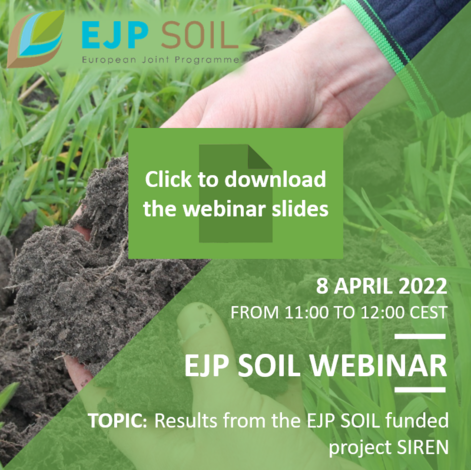SIREN
| Start: | 1 February 2021 |
| Duration: | 12 Months |
| Aim: | To make an inventory of indicator systems for assessing soil quality and ecosystem services, as currently used by Member States associated in the EJP SOIL and beyond |
| Keywords: | Ecosystem services framework, Indicator systems, Inventory, Soil quality assessment, sustainable target values |
| Contact: | Project coordinator: Dr. Jack Faber (jack.faber@wur.nl) Project communication representative: Astrid Taylor (astrid.taylor@slu.se) |
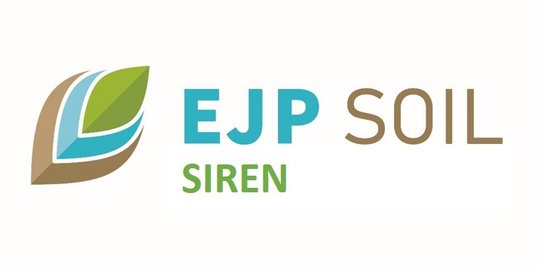
-
Watch the Webinar Video for more about the research results from the SIREN project (43 min)
-
Click button below to download the webinar slides as pdf.
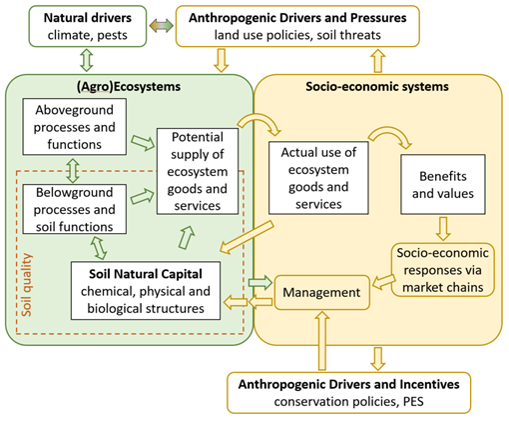
Towards a conceptual framework
The SIREN project has made an inventory of how EJP SOIL Member States and beyond currently make use of soil data for assessing ecosystem services.
-
Which Soil Quality Indicators (SQIs) are used to this extent?
-
What ecosystem services are being evaluated?
-
How are soil data translated to assess service provision?
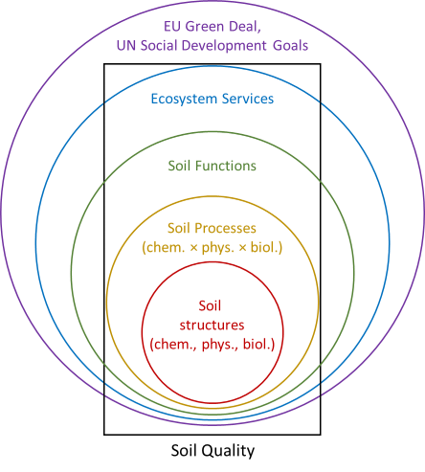
SIREN has identified and reviewed the national frameworks and logic chains from soil properties via soil functions to soil ecosystem services and the indicators of soil quality state and functions plus their reference values. Furthermore, SIREN has identified whether these have been implemented into policy, and what immediate cross-cutting challenges remain.
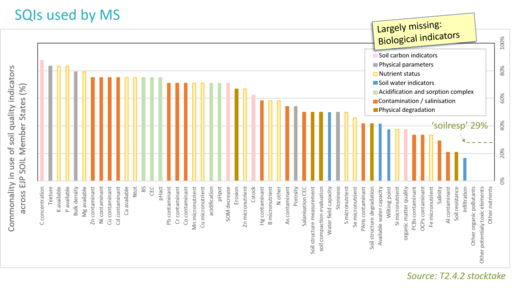
Towards pan-European monitoring
Building on a previous EJP SOIL stocktake (Deliverable D2.2), SIREN performed a further inventory of reference values for soil carbon, soil biodiversity and degradation risk, the associated target values of indicators. From Partner’s feedback key knowledge gaps and urgent development needs were identified.
Also, in an approach toward pan-European soil monitoring, a tiered approach is proposed that includes a “minimum dataset” of SQIs that can be relatively easily harmonized because of wide application in national monitoring schemes.
Clearly this shortlist of SQIs would need extension with indicators for soil biology, hydrology and organic contaminants. Synchronisation with Ecosystem Assessment and Biodiversity Assessment is also recommended.
Project leader and partners
Project leader:
Wageningen Research (WR)
Responsible person from organization: Dr. Jack H. Faber
Co-Lead Partners:
Swedish University of Agricultural Sciences, Sweden (SLU)
Responsible person from organization: Dr. Astrid Taylor
Institut National de la researche Agronomique, France (INRAE)
Responsible person from organization: Dr. Isabelle Cousin
Call text: ES1/ES2
Methodologies and tools to assess the contribution of soils to ecosystem services / for assessing soil quality
The soil`s natural functions are multi-fold as they ensure life through sustaining primary productivity and a large part of the overall biodiversity, play a key role in the carbon, nutrient and water cycles and control multiple natural processes. Evidently soil is useful to humans as a source of raw materials, land for settlement, economic and public uses, and agricultural and silvicultural land use. However, the soil’s capacity to sustain functions can be altered by a number of degradation processes, thus decreasing their capacities to provide ecosystem services.
The study will evaluate the ability of agricultural soils to sustain functions and ecosystem services and thereby evaluate their quality requires to have: i) an explicit framework and chain from soil properties to soil functions and to soil ecosystem services, ii) indicators of soil state and functions, and iii) a set of reference values for these indicators, in the different pedo-climatic conditions for the main agricultural productions.
Project type: A combined stocktake / 40 PM
